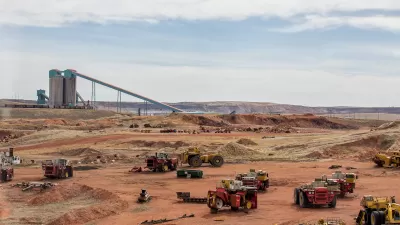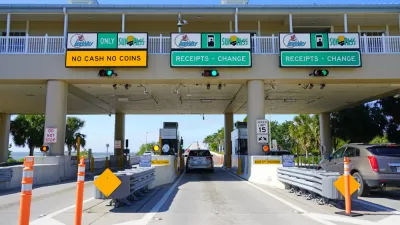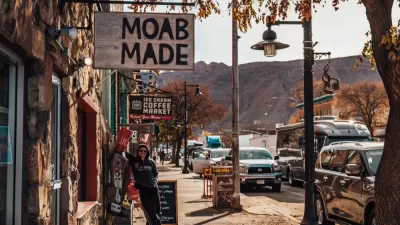Examples from around the world showing that the popular theory often doesn't hold up present powerful implications for commons management.

The concept of the "tragedy of the commons," developed in 1968 by Garrett Hardin, goes like this: "humans, when left to their own devices, compete with one another for resources until the resources run out." Writing in Aeon, Michelle Nijhuis argues that this popular theory, which has since "provided a temptingly simple explanation for catastrophes of all kinds," is "a false and dangerous myth."
Political scientist Elinor Ostrom, who went on to win the Nobel Prize in Economic Sciences in 2009—decades after her pioneering research—found examples from around the world that contradicted Hardin's hypothesis that "[f]reedom in a commons brings ruin to all."
"While Hardin speculated that the tragedy of the commons could be avoided only through total privatisation or total government control, Ostrom had witnessed groundwater users near her native Los Angeles hammer out a system for sharing their coveted resource. Over the next several decades, as a professor at Indiana University Bloomington, she studied collaborative management systems developed by cattle herders in Switzerland, forest dwellers in Japan, and irrigators in the Philippines. These communities had found ways of both preserving a shared resource – pasture, trees, water – and providing their members with a living."
The successful communities, Ostrom observed, featured some similarities: "clear boundaries (the ‘community’ doing the managing must be well-defined); reliable monitoring of the shared resource; a reasonable balance of costs and benefits for participants; a predictable process for the fast and fair resolution of conflicts; an escalating series of punishments for cheaters; and good relationships between the community and other layers of authority, from household heads to international institutions."
Ostrom's research has powerful implications for the field of commons management, an increasingly important aspect of a globalized world facing the threat of destabilizing climate change and other conservation challenges. "While conservation almost always carries at least some short-term costs, researchers have found that many community-based conservation projects reduce those costs and, over time, deliver significant benefits to their human participants, tangible and intangible alike."
FULL STORY: The miracle of the commons

Planetizen Federal Action Tracker
A weekly monitor of how Trump’s orders and actions are impacting planners and planning in America.

Maui's Vacation Rental Debate Turns Ugly
Verbal attacks, misinformation campaigns and fistfights plague a high-stakes debate to convert thousands of vacation rentals into long-term housing.

Cuomo Is the Candidate of Both NIMBYs and Developers. What Gives?
In the New York City mayoral race, odd bedfellows align to preserve the housing status quo.

Amtrak Rolls Out New Orleans to Alabama “Mardi Gras” Train
The new service will operate morning and evening departures between Mobile and New Orleans.

The Subversive Car-Free Guide to Trump's Great American Road Trip
Car-free ways to access Chicagoland’s best tourist attractions.

San Antonio and Austin are Fusing Into one Massive Megaregion
The region spanning the two central Texas cities is growing fast, posing challenges for local infrastructure and water supplies.
Urban Design for Planners 1: Software Tools
This six-course series explores essential urban design concepts using open source software and equips planners with the tools they need to participate fully in the urban design process.
Planning for Universal Design
Learn the tools for implementing Universal Design in planning regulations.
Heyer Gruel & Associates PA
JM Goldson LLC
Custer County Colorado
City of Camden Redevelopment Agency
City of Astoria
Transportation Research & Education Center (TREC) at Portland State University
Jefferson Parish Government
Camden Redevelopment Agency
City of Claremont





























